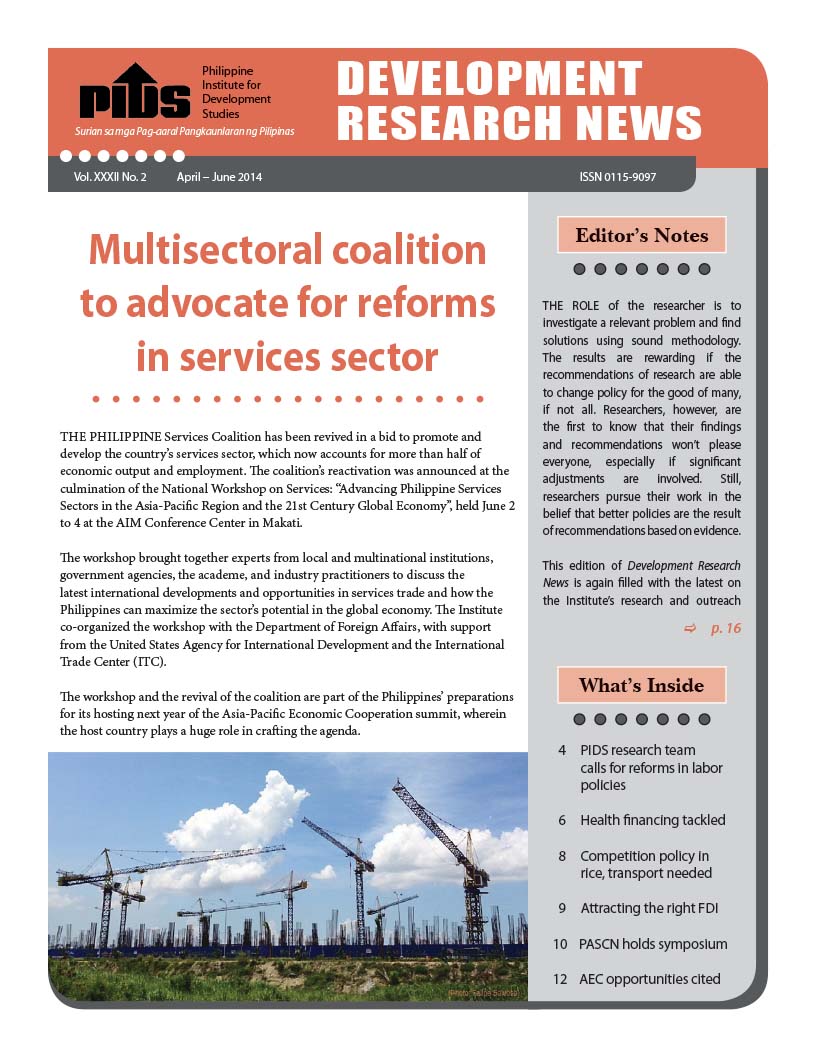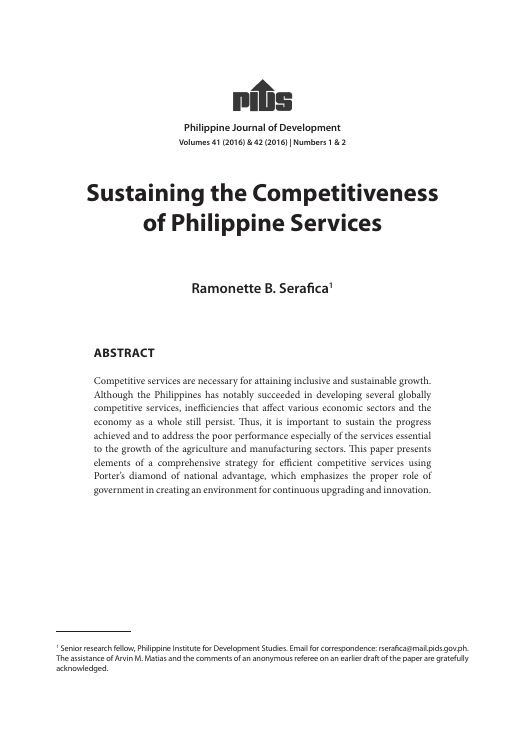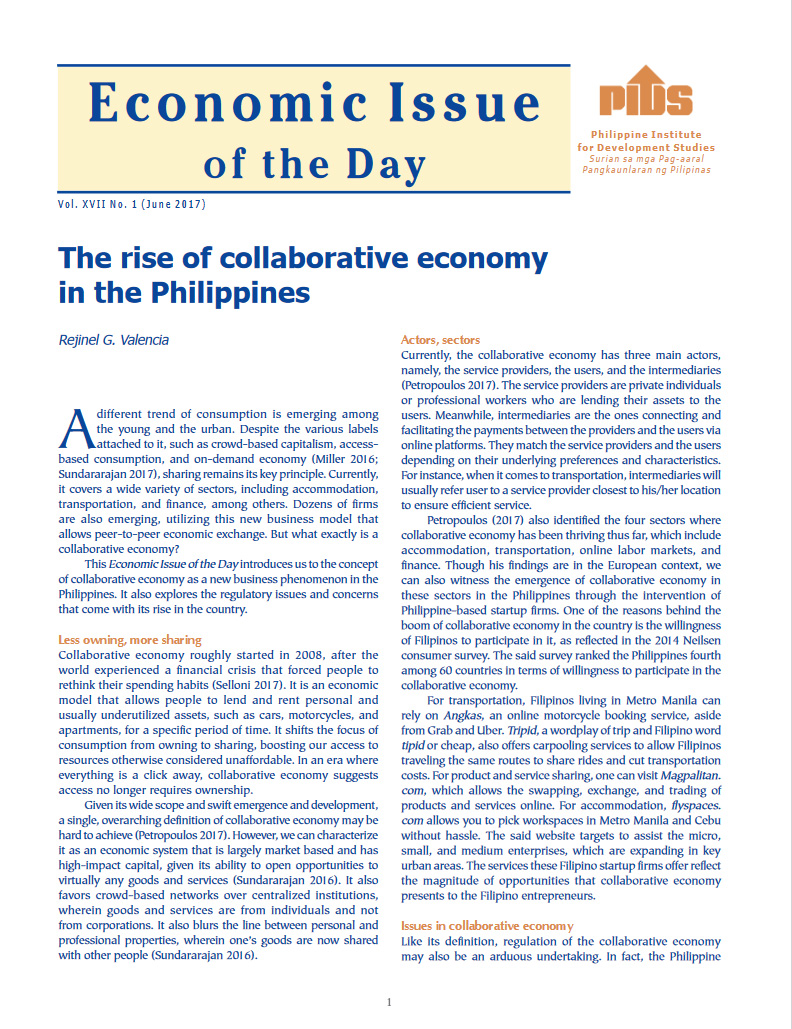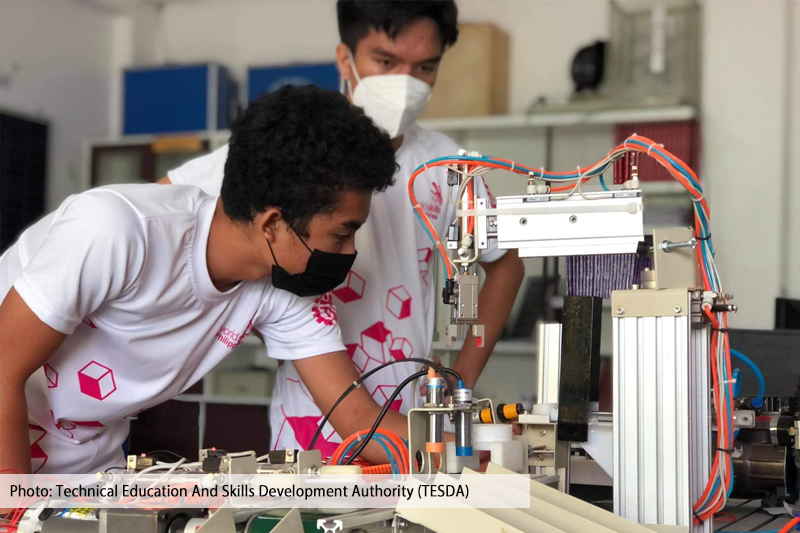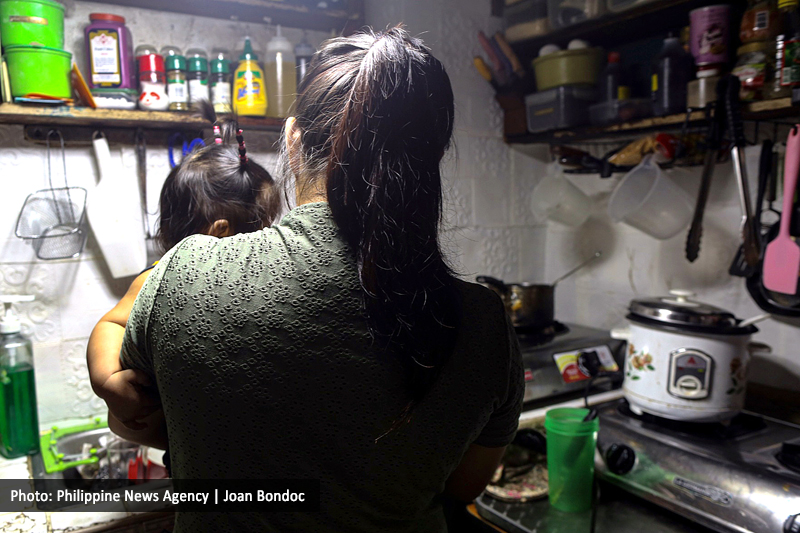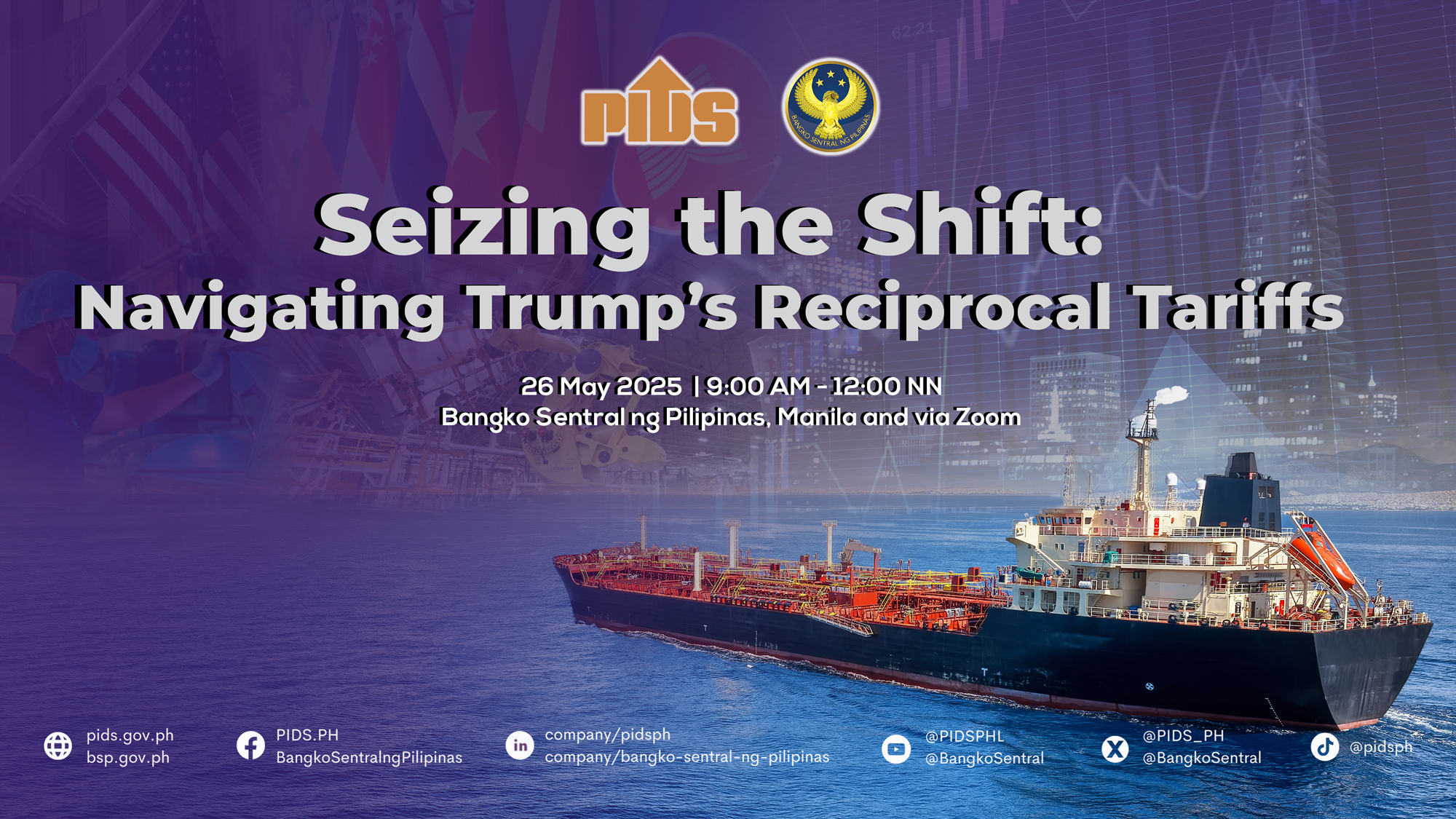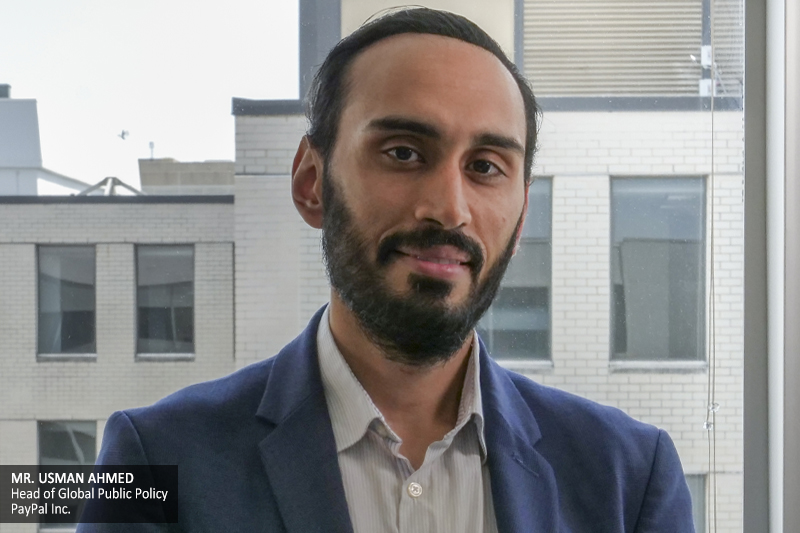
Amid the ongoing debate sparked by the COVID-19 pandemic on whether businesses should shift from ‘shareholder capitalism’ to ‘stakeholder capitalism’, Paypal Inc., a multinational financial technology company, showed it can be done.
Speaking at the second of the four-part webinar series of the 7th Annual Public Policy Conference (APPC), Paypal’s Head of Global Public Policy Usman Ahmed shared that his company’s shift to stakeholder capitalism about six years ago has shown positive impacts on its employees and their communities.
Shareholder capitalism means the interests of only one stakeholder (the owner) dominate and aims to maximize profits and shareholder value. In contrast, stakeholder capitalism considers the interests of all stakeholders (employees, customers, suppliers, community, etc.) and prioritizes long-term value creation.
Ahmed said Paypal’s initial step was to prioritize their employees’ well-being, who, they found out, only had 4 percent of their monthly paycheck allotted for emergencies and savings.
“What we found when we started digging into our employees—a large group of which are in the Philippines—that while we were paying above-market rates in every single market we operated in, our employees were still struggling to have any money left at the end of the month for any emergencies or savings for the long-term or for their kids,” Ahmed explained.
This prompted the company to set a net disposable income of 20 percent for its employees by raising wages, lowering healthcare costs, expanding employee relief fund for emergencies, and offering education and financial counseling services.
“I am very proud to say that [from] 4 percent [net disposable income], we are now at 18 percent globally—very close to our goal of 20 percent. That’s meaningful. That’s savings for college or [for] healthcare emergencies for the everyday employee. That is where we wanted to begin our focus—on the employees,” Ahmed shared.
Aside from assisting their employees, Usman said it is also important to focus on day-to-day issues. Paypal, for instance, made a stand on environmental issues, democracy, and racial equity.
“These are [issues that do not show up] on the balance sheet [nor get] reported to an accountant. But they are societal issues. They are the ones that our company—[as reflected in] our [environmental, social, and governance] materiality map—cares about and has the ability to engage on. And so, we chose to engage,” Ahmed explained.
Meanwhile, he said that firms should also recognize the impact of their products and services on their customers.
“That's leveraging those products and services to serve a key stakeholder…Our shareholders might be interested in the largest merchants, but there is this [underserved] huge community that we can target,” Ahmed said, pointing out that “when small businesses use our platform, they export more, grow faster, and survive longer.” Thus, Paypal chose to focus on small businesses that do not have the means to compete with large corporations.
Ahmed claimed that their move toward stakeholder capitalism not only benefitted Paypal’s stakeholders but their shareholders as well, as it resulted in increased revenues, earnings per share, operating margins, and free cash flows.
“This [stakeholder view] is an expectation now. Millennials—in particular, young people—are expecting companies to do this. It is not just that it’s good for society and the shareholders, and it is the right thing to do… This is now the norm,” Ahmed concluded. ###
You may watch the APPC webinar on “Ethical Business” at https://fb.watch/86XZ9o9mp3/ and https://youtu.be/ZtsoYID10YM For more videos of PIDS events, go to https://www.pids.gov.ph/videos.
Speaking at the second of the four-part webinar series of the 7th Annual Public Policy Conference (APPC), Paypal’s Head of Global Public Policy Usman Ahmed shared that his company’s shift to stakeholder capitalism about six years ago has shown positive impacts on its employees and their communities.
Shareholder capitalism means the interests of only one stakeholder (the owner) dominate and aims to maximize profits and shareholder value. In contrast, stakeholder capitalism considers the interests of all stakeholders (employees, customers, suppliers, community, etc.) and prioritizes long-term value creation.
Ahmed said Paypal’s initial step was to prioritize their employees’ well-being, who, they found out, only had 4 percent of their monthly paycheck allotted for emergencies and savings.
“What we found when we started digging into our employees—a large group of which are in the Philippines—that while we were paying above-market rates in every single market we operated in, our employees were still struggling to have any money left at the end of the month for any emergencies or savings for the long-term or for their kids,” Ahmed explained.
This prompted the company to set a net disposable income of 20 percent for its employees by raising wages, lowering healthcare costs, expanding employee relief fund for emergencies, and offering education and financial counseling services.
“I am very proud to say that [from] 4 percent [net disposable income], we are now at 18 percent globally—very close to our goal of 20 percent. That’s meaningful. That’s savings for college or [for] healthcare emergencies for the everyday employee. That is where we wanted to begin our focus—on the employees,” Ahmed shared.
Aside from assisting their employees, Usman said it is also important to focus on day-to-day issues. Paypal, for instance, made a stand on environmental issues, democracy, and racial equity.
“These are [issues that do not show up] on the balance sheet [nor get] reported to an accountant. But they are societal issues. They are the ones that our company—[as reflected in] our [environmental, social, and governance] materiality map—cares about and has the ability to engage on. And so, we chose to engage,” Ahmed explained.
Meanwhile, he said that firms should also recognize the impact of their products and services on their customers.
“That's leveraging those products and services to serve a key stakeholder…Our shareholders might be interested in the largest merchants, but there is this [underserved] huge community that we can target,” Ahmed said, pointing out that “when small businesses use our platform, they export more, grow faster, and survive longer.” Thus, Paypal chose to focus on small businesses that do not have the means to compete with large corporations.
Ahmed claimed that their move toward stakeholder capitalism not only benefitted Paypal’s stakeholders but their shareholders as well, as it resulted in increased revenues, earnings per share, operating margins, and free cash flows.
“This [stakeholder view] is an expectation now. Millennials—in particular, young people—are expecting companies to do this. It is not just that it’s good for society and the shareholders, and it is the right thing to do… This is now the norm,” Ahmed concluded. ###
You may watch the APPC webinar on “Ethical Business” at https://fb.watch/86XZ9o9mp3/ and https://youtu.be/ZtsoYID10YM For more videos of PIDS events, go to https://www.pids.gov.ph/videos.

